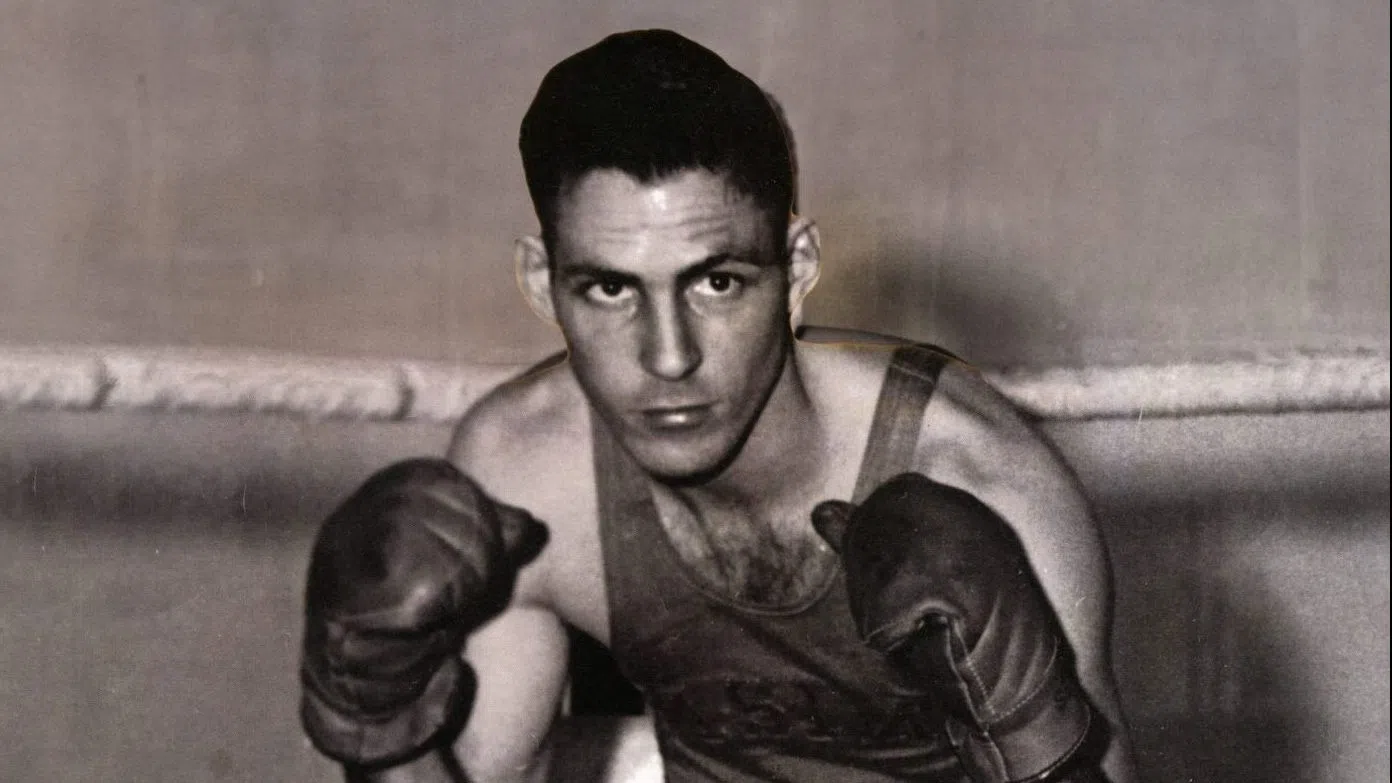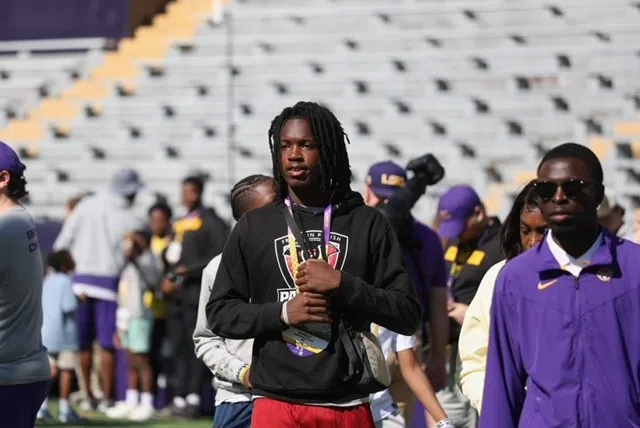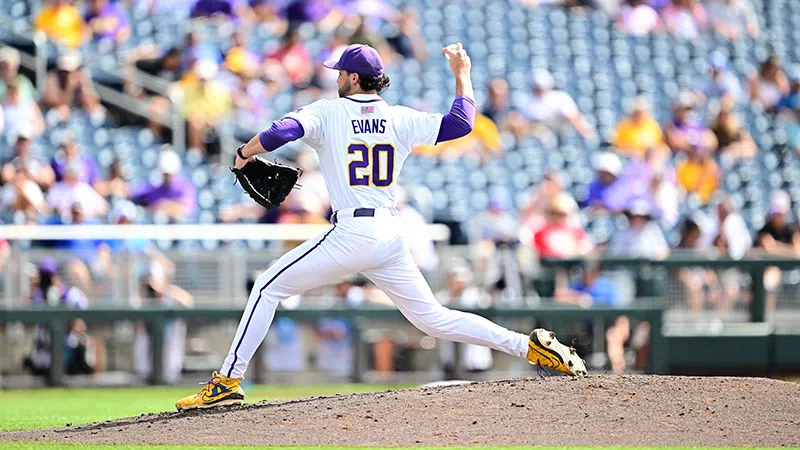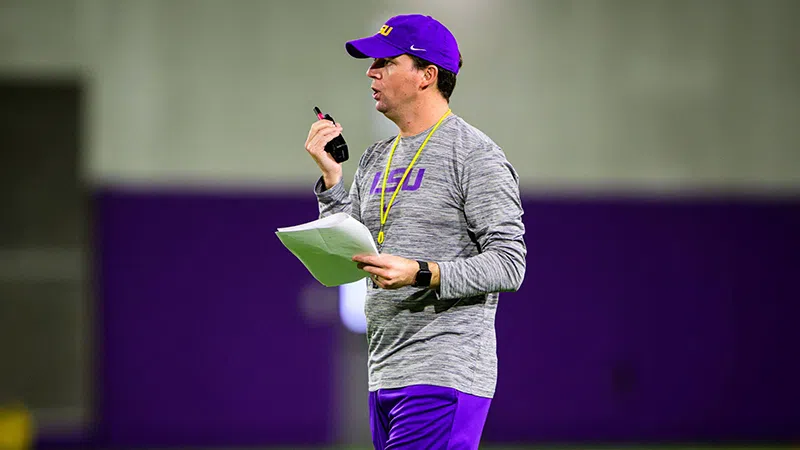
By RAYMOND PARTSCH III
Written for the LSWA
George “Bobby” Soileau taught his son how to throw a punch.
Every day after coaching and teaching students at Sacred Heart High School, Soileau would come home to his wife and three sons and put on his worn-out gloves and show his youngest son, Robert, how to throw a jab.
“He always loved to put the gloves on and box with me when I was little,” Robert recalled. “Every day, it is what we did together. We would box in the backyard or even in the living room. I was six or seven years old, and he would get on his knees and box me. He would let me swing, and then he would swing, and then teach me how to block. That’s what my dad and I did nearly every day.”
The older Soileau does not always remember those days of bonding with his son.
There are more days than not when he does not recall being one of Louisiana’s elite boxers with a fierce left jab that helped him claim four state championships and an individual national championship in college.
He sometimes forgets returning to his alma mater and turning the high school football program into a perennial and respected playoff team, with immense toughness and discipline. Even the faces of his former players or his assistant coaches seem like strangers to him now, and there are even days when he doesn’t recognize his son.
Dementia has taken that away from the 89-year-old Soileau. The accomplishments in the boxing ring and gridiron are only slight flickers of light now as Soileau is unable to relive those moments that will see him be inducted into the Louisiana Sports Hall of Fame as a member of the Class of 2025, June 26-28 in Natchitoches. Visit LaSportsHall.com for event information.
“He just doesn’t understand,” Robert said. “I ask him the same questions every single day because the doctors told us that it helps. To his credit, he can still tell me his momma’s name, his brothers’ names, and their nicknames. He even remembers being a boxer. He will sometimes say, ‘Yeah, I was a national champion at LSU.'”
A few moments later, though, Soileau will not be able to remember his time as the Trojans’ head coach or his time serving the public as a member of the Evangeline Parish School Board or Police Jury.
“I tell him all of the stuff he did in his life,” Robert said. “How he coached at Sacred Heart for 30 years and served on all those boards, or the players that coached underneath him for years. He won’t remember it. He will ask me, ‘I don’t know where you learned all of that.’ I just smile and tell him, ‘I learned it from you. I was living with you’.”
Dementia may prevent Soileau from reliving those cherished memories and accomplishments, but so many others that he coached are honored to share those stories on his behalf.
“He taught all of us the way to handle things,” remembered Billy Joe Davenport, who was one of four brothers to play for Soileau. “He understood things and how the world worked. He taught us how to handle the football field, school, and anything else in this life.”
“We took on his character,” said Gary Inhern, quarterback on the 1967 state title team. “He was tough, but he was also a daddy to us. There is not one of us who played for him that would not have run through a brick wall. We would have it done then, and we still would.”
Born March 6, 1936 to Emery and Izola Soileau, George Willard Soileau started to put together a legendary boxing career before he reached high school.
In the 1950s, boxing was one of the more popular high school sports in Louisiana. From October through March, high school gyms and auditoriums would be transformed into makeshift boxing arenas for three-round matches drawing thousands of spectators.
For kids in that era, the passion for the squared circle began at an early age.
“The kids at Sacred Heart started young like I did,” Soileau told The Ville Platte Gazette in December of 2015. “When I was boxing at Sacred Heart, we had fifth- and sixth-graders who were training. That is just what we did.”
His prep career began in the eighth grade at Sacred Heart under famed coach Jack Reed, and he won the 90-pound state championship in 1950. He would proceed to take the 100-pound crown in 1951, the 110-pound title in 1952, and the 125-pound championship in 1954, the same year he was awarded the prestigious Francis G. Brink Trophy for being the state’s best boxer.
In his five-year career, Soileau went 96-2-1, won four state championships, and finished as state runner-up in 1953 when he lost to Plaquemine’s Bruce Boudreaux in the 115-pound title bout, a fight considered to be one of the greatest in state history.
“He was just such a good fighter,” Ville Platte High fighter Glenn Fontenot told the VP Gazette in 2015. “I think my record in high school was like 60-5. The only year I reached the state tournament, I fought Bobby in the opening match. He beat me by TKO. He took care of me. He beat everybody to the punch.”
Soileau received a boxing scholarship from LSU, which was established as one of the best boxing programs in the country. The Tigers had won the NCAA team national championship in 1949, and also had claimed several individual national championships before Soileau arrived.
“We had a good boxing team,” Soileau said in 2017. “We couldn’t box against people around Louisiana. We had to go thousands of miles away to find people who were still boxing in college. We won most of our boxing matches that we went to out of state.”
As a sophomore with the Tigers, he helped the team to a 7-1-1 dual-meet record and won the 1956 NCAA national title in the 125-pound (featherweight) division.
“Bobby was a fantastic boxer,” LSU football legend and Louisiana Sports Hall of Famer Billy Cannon said in 2017. “I followed Bobby’s whole career. I went out every time LSU had a sporting event.”
Soileau’s time at LSU was cut short.
The LHSAA decided to drop boxing as an officially sanctioned sport in 1958. At the same time, universities were eliminating their boxing programs. LSU did it in 1956, and the NCAA in 1961.
“I had just won the national championship in college, and my coach called me in one day and he said I got some bad news, we are losing boxing,” Soileau said in 2017.
Soileau considered turning professional, but breaking his shoulder during a practice at the Olympic Trials in Wisconsin for the 1956 Summer Olympics derailed that, as did a pinched nerve that bothered him for the rest of his life. With his boxing career finished, Soileau took an assistant girls basketball coaching position at McKewin High School in Jackson before he returned to his alma mater the following year.
Soileau’s boxing career may have ended, but the lessons he learned inside the ring would last for decades.
“Boxing made me a better person and it made me a better coach,” Soileau said.
Discipline, accountability, and hard work were the pillars of Soileau’s three decades at Sacred Heart.
“If you put in the work, you would get off the bench,” former Sacred Heart lineman Jeff Deville said. “It takes a lot of work and sacrifice to be great. He knew what it took to get there, and he always tried to lead you down that path. If you didn’t work hard, then you didn’t play.”
Soileau did not alter his tough-love approach for anyone. Not for his players, their parents, his own coaches, school administrators, and not even the local Catholic priest.
“My dad was known for dropping a few curse words on the field during practice,” laughed his son Robert. “The local Catholic priest started coming and walking around the track at the football stadium to exercise. He showed up one day at school and wanted to talk to my dad in his office. He told my dad, ‘When I walk around the stadium’s track, I hear you saying curse words. I would appreciate it if you could watch that language coach.’ My daddy listened to him and then said matter-of-factly, ‘The only thing I can tell you, F ather, is that you need to come back at a different time because I am not changing’.”
If you wanted to play for Soileau, then you had to accept his tough love. That wasn’t all, though. You always had to be conditioned — conditioned like a championship boxer.
“The way he coached was that he was going to beat your butt in the fourth quarter,” said former Sacred Heart defensive back-return man Jeff David. “We were so conditioned. We ran more than we ran plays. We would be so tired, he would sprint us until we were blue in the face.”
“We always started out in full pads,” Inhern said. “There was no such thing as a water break. If you had a chance to drink rain water out of the ditch, or take your jerseys full of sweat and drink that, then you did it. He was a tough son of a gun.”
“It was a lot of conditioning,” said Davenport, who would go on to star at McNeese. “I am telling you the truth. We did more conditioning at Sacred Heart than I ever did at McNeese.”
The other emphasis in his tenure as the Trojans’ head coach was special teams. Soileau was having his team practice formations and trick plays, long before it became commonplace.
“I remember how they were always well prepared,” said legendary Port Barre coach Donnie Perron, a Ville Platte native who coached in the same district against Soileau. “They always played hard, and he got the most out of his kids, especially on special teams. They would do a reverse instead of a wall, and they scored so many touchdowns on that. We started doing that. That’s where I got it from.”
Soileau would lead the Trojans for 30 seasons, compiling a record of 159-100-9 and winning at least a share of nine district titles, the 1967 Class B state championship and finishing runner-up in Class 1A in 1971. He was twice selected as the LSWA Coach of the Year and inducted into the Louisiana High School Sports Hall of Fame in 1988.
Soileau will now receive the state’s most prestigious honor — membership in the Louisiana Sports Hall of Fame. Although he won’t be there to enjoy it in person due to his health, those young boys who he molded into young men will be there. Even after the weekend ends, they will still remember the impact he made on their lives.
“He touched so many lives,” David said. “Yeah, he coached football, but he coached you about life. The only thing that is keeping him alive is his will to live. It is the same will that he had when he was boxing and when he was coaching. That only comes from the soul. He was and still is a part of the soul of Ville Platte.”
As the years go by, the memories of a Hall of Fame career fade more and more, but they still flicker inside Soileau, even if it is only for a few moments. Every day when Robert leaves the nursing home where his father resides, he goes through a familiar routine, which he learned from sparring with his dad six decades ago. Now he gives that precious gift back to his father.
“Before I walk out, I put my hands up and ask if he can still move,” Robert said. “Without hesitation, he throws me a few of those left jabs. His hands are still really fast. He is still in there.”
Raymond Partsch III is a multi-media sports journalist in Lafayette, where he is sports director for a radio group and hosts a daily sports radio show airing in Lafayette and Lake Charles. An award-winning writer and editor of sports sections in Alexandria and Beaumont, Partsch became the first two-term president of the LSWA since its founding in 1958.
For updates on the 2025 Induction Celebration, use this link: lasportshall.com/InductionInfo
or text “InductionInfo” to 41444
@LaSportsHall on X (formerly Twitter)
Instagram: lasportshall
Facebook.com/LASHOF
LaSportsHall.com

More Top Stories










